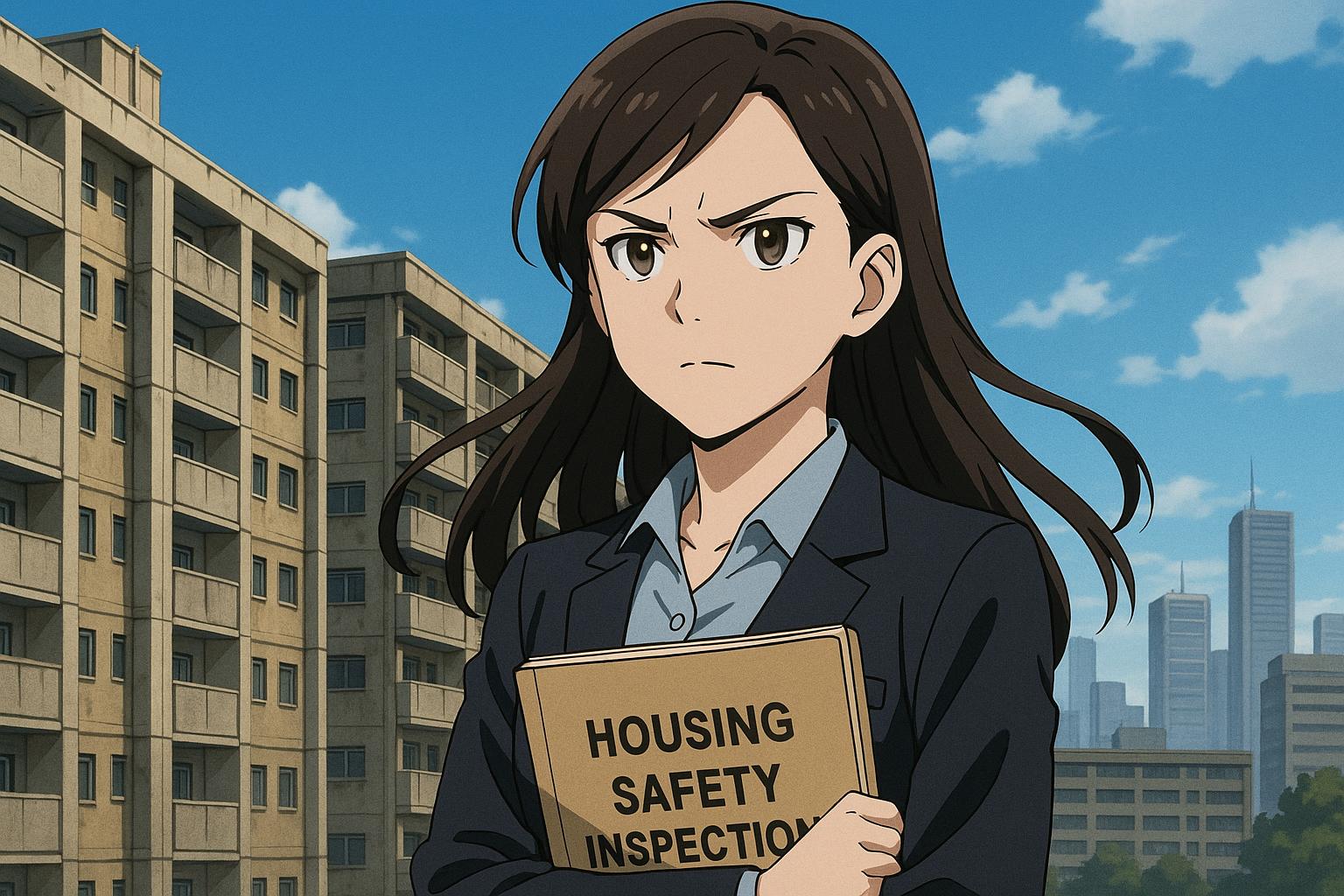A recent report has unveiled significant shortcomings in the social housing management of the London Borough of Brent, raising questions about the council’s commitment to tenant safety. This revelation comes at a time when the Labour administration is actively pursuing unlicensed landlords through door-to-door checks in the borough, where it oversees approximately 12,500 homes. Despite these enforcement efforts, the Regulator of Social Housing (RSH) has identified alarming weaknesses in Brent's management of essential safety data pertaining to fire, smoke, carbon monoxide, and asbestos.
The RSH's findings are particularly troubling; it claims that the council lacks the necessary accuracy and coherence in its fire safety data. With almost half of Brent's housing stock supposedly lacking recorded surveys, there is a dire implication that the council cannot adequately confirm compliance with legally mandated safety assessments. This contrasts sharply with the council's earlier claims of possessing condition data for 95% of its housing portfolio.
The significance of accurate data in delivering safe homes cannot be understated. Kate Dodsworth, chief of regulatory engagement at the RSH, stated that “Accurate, up-to-date data is fundamental to landlords delivering safe, decent homes for tenants.” She recognised the council’s willingness to engage positively with RSH since their self-referral, indicating a potential pathway for improvement. However, she also highlighted the critical need for robust governance and the rigorous evaluation of risks, stating, “Things can go wrong without robust board challenge and rigorous stress-testing.”
The council’s current scrutiny of private landlords contrasts starkly with its own maintenance and safety performance. Just last month, Brent officers had been active in assessing local properties for compliance, taking steps to penalise landlords failing to meet safety standards. Councillor Fleur Donnelly-Jackson justified these measures, asserting, “This law exists to protect people from landlords who put them at risk by ignoring safety standards.” However, these proactive measures appear inconsistent when juxtaposed with the council’s own records.
The broader implications of these findings resonate deeply with issues across the country concerning fire safety in social housing. Recent government publications have consistently emphasised the imperative for landlords to swiftly remediate life-critical fire safety defects. In particular, reports have underlined the responsibility of councils to execute timely and effective remediation plans, thereby ensuring tenant safety and confidence in their homes. The emphasis on monitoring progress and engaging with landlords suggests a shared accountability that extends beyond the walls of individual councils.
In an effort to address these broader safety concerns, Brent Council is reportedly pivoting towards a new approach in housing repairs. By moving away from a single-contractor system to a multi-contractor model, the council aims to enhance efficiency, improve response times, and ultimately increase tenant satisfaction. This reform includes the establishment of an in-house 'mould squad' to tackle the persistent issues of damp and mould, further demonstrating a commitment to addressing tenant health and well-being.
As Brent navigates these complex challenges, the council's actions will be closely scrutinised not only by the RSH but also by tenants and the wider community. The balancing act between enforcing standards among private landlords and ensuring the safety and satisfaction of its own tenants will define the council's reputation in the coming months. How Brent rises to the occasion, amidst scrutiny and the urgent need for repairs, will be of critical concern as it strives towards providing a safe living environment for all its residents.
Reference Map:
- Paragraph 1 – [1], [6]
- Paragraph 2 – [1], [2]
- Paragraph 3 – [3], [4]
- Paragraph 4 – [5]
- Paragraph 5 – [6], [7]
Source: Noah Wire Services
